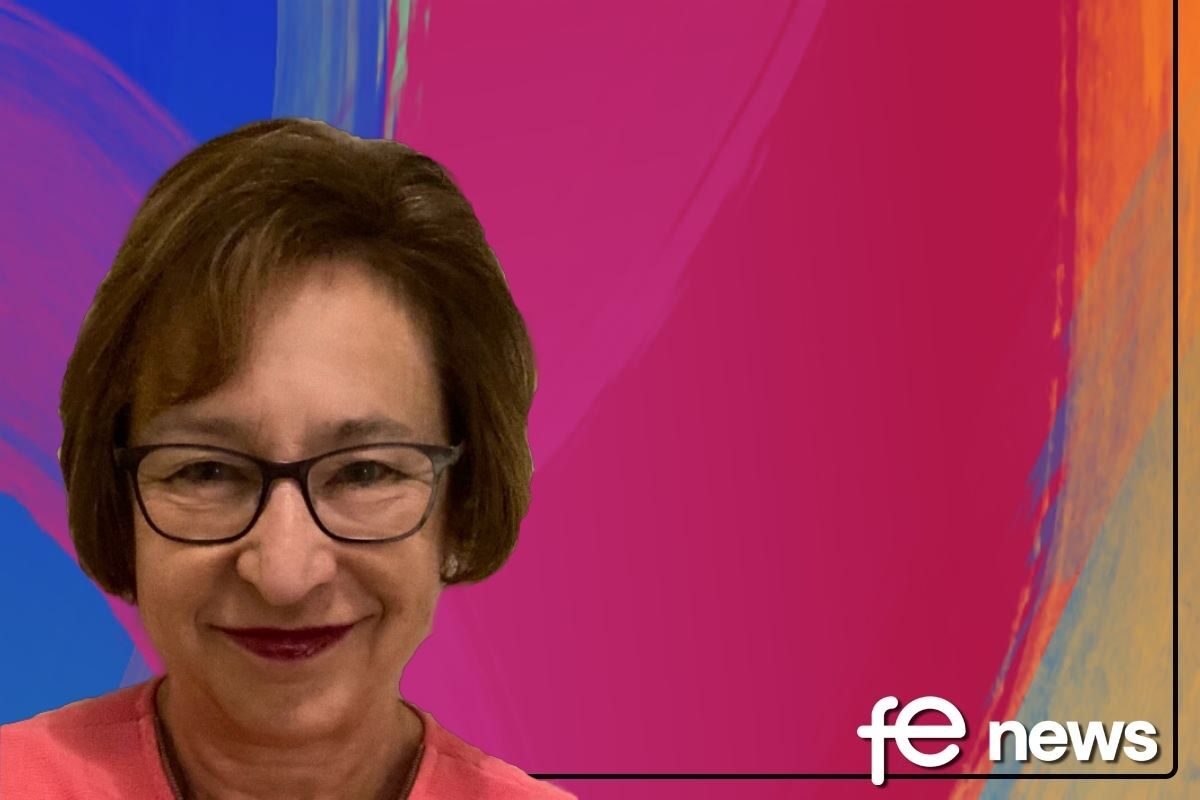Reports That Adult Courses Are Dead Are Greatly Exaggerated

I keep reading about the death of adult learning. But I don’t believe it!
It started with the Learning and Work Institute’s adult participation survey which shows a steady decline over a decade or more. The 2019 figure shows the lowest participation rate since the survey started. The report also claims that just 27% of adults have taken part in learning in the past three years, down from 23% in 2011 .. hold that thought!
“The number of learners taking part in evening classes has declined by around 50 per cent in the past 10 years”. TES recently reported after conducting a survey using FOI requests.
122 colleges responded, many of these had no evening class provision.
It looks conclusive, but is it? What we are told and reality are often different. For example Mark Twain allegedly said:
“Reports of my death have been greatly exaggerated.”
But of course Mark Twain never said this. He didn’t actually exist. He was the pseudonym of author Samuel Clemens. And apparently Clemens never said it. He actually wrote, “The report of my death was an exaggeration.”
So why don’t I believe that Adult Ed has died?
Firstly we have to differentiate between Adult Education, Evening Classes, Adult Participation and what constitutes education and learning.
Comparing FE’s Apples and Pears
The Learning and Work Institute’s survey takes a very broad definition. Their website says, “The survey deliberately adopts a broad definition of learning, including a wide range of formal, non-formal and informal learning, far beyond the limits of publicly offered educational opportunities for adults.”
Let’s start with what ought to be simple but isn’t. Let’s define learning.
And that being the case I’d suggest that, if true, the situation is worse than we might at first surmise.
The definition problem comes into play when we ask people if they have participated in learning. Knowing this I wanted to test people’s interpretation of learning and whether they have participated in learning.
At the start of the lockdown I decided to set up a gardening group on Facebook. As an ex-commercial fruit & veg grower I wanted to share my enthusiasm, and having a Cert Ed, I naturally wanted to include some teaching and learning in the process.
Over the last weeks over 900 people have joined my group and I’ve posted many bitesize lessons on everything from growing tomatoes to Latin plant names. I don’t label them as lessons but the level of engagement has been surprisingly high with people telling me they have learnt a lot.
I selected a handful of people that had commented that they had “learnt so much” and asked if I could ask a few questions on an unrelated topic, education and learning. Six out of the seven approached claimed not to have undertaken any formal or informal learning since leaving school.
So they claimed they’d both “learnt a lot” but hadn’t undertaken any learning since leaving school. Both statements cannot be correct.
But of course the people answering surveys do so within a perceived context. By the Learning and Work Institute’s definition they had undertaken a form of learning. And by definition, when someone undergoes an experience that causes behavioural change, they have learnt something. But my group viewed my question through the lens I created when I said it was “about education and learning”.
This just shows how the context changes perception. What the respondent probably meant was that they hadn’t undertaken a course or formal education since leaving school.
I don’t know how the Learning and Work Institute phrased their questions but the fact they came from the Institute would have established a certain perception in the mind of those being surveyed. And even if that premise were negated there are hundreds of other prompts that can skew results.
Using the Learning and Work Institute’s broad definition, which includes the definition produced by Combs et al, reading an instruction manual or map is learning. So is watching a documentary on TV or reading a paper. In fact anything that prompts the response, “I didn’t know that “, indicates that learning has occurred.
So for anyone to suggest they haven’t learnt anything since leaving school is contrary to the definition used.
So when the Institute claim that many adults have not taken part in any learning in the last three years I have to ask if, based on their own definition of informal learning, they believe that is possible. And if not, why publish it?
Plus, looking at the adults that have NOT taken part in learning in the past three years, I’ve been told it’s gone from 36% to 38% in the last three years. True, the report shows these figures, but it was 37% in 1999. Figures can prove any argument if carefully selected!
We Don’t Need Colleges To Learn Something New
It’s quite clear that for behavioural change to occur it’s not necessary to go to college. So, though the data is fascinating, all it indicates is that the number of learners taking part in evening classes has declined by around 50 per cent in the past 10 years in colleges. And even then it’s only in those colleges where data was provided.
However, I do believe it true to say that evening class numbers in colleges are dropping. My experience is that this has been happening for years.
But that’s a far cry from the headline that exclaimed “Number of adult learners hits record low”. It’s only true in the college context, not as an overarching statement without context.
Does the College Adult Ed Decrease Matter?
If you are a college, YES. It affects college income.
And I’m tempted to ask who cares, except colleges. Because adults are still by definition learning. Just not in ways that involve colleges.
I haven’t taken a college course or evening class in years. But I’m currently taking a MOOC with the University of Cape Town and Leeds Uni. I’ve also watched many high quality YouTube videos in recent weeks; have read books, research papers and website posts; have watched TV and listened to the radio and high quality podcasts from the BBC and others. To write this article I had to research and learnt a lot; but I haven’t taken an adult ed class in college.
It’s not that I haven’t wanted to attend college classes. I actually tried to find an oil painting course a few months ago. I hit the same brick wall as when I wanted a coding course. They didn’t exist in the format I wanted. The very few that I found were miles away and were two hour sessions over several terms. And I, and many other members of the public, don’t want a course that takes months, we want to do it in a few weeks or preferably over a weekend. And we don’t want to wait until September!
Ohh and it’s not always about money. Many of us will pay the fees if the quality and timing is good. And whereas a few colleges blame the downturn over the lack of funding others don’t.
Some principals recognise the tide has turned. Ian Pryce, Bedford College Group CEO, has been quoted as saying, “People don’t want to give up a whole year to learn something in bite-sized hours, they’d rather blitz it.” He continued, “This notion that we stopped doing [evening classes] because of funding, that’s just not the case.”
Pryce is, I believe, enlightened. Many other college leaders aren’t, and blame the lack of funding for the decrease in numbers. I personally believe that is an introspective perspective that ignores the needs of many students. It’s an old guard perspective on education that I hope Covid will help dismiss from our colleges.
The old guard invariably assumes that classes must be on-campus. They haven’t grasped that learning doesn’t need to be September based over three terms. In fact it doesn’t need to be on campus or even use FT college staff.
Public Demand Shouldn’t Be News to College
What the public now demand shouldnt be a surprise to colleges. I’ve previously written extensively about these topics. In 2017 I wrote …
“Colleges now have choices to make. Complaints about underfunding are rife. But if we re-examine our objectives, and think about how we deliver learning as micro classes, the tables are turned from the conventional model to something less conventional. Large classrooms aren’t needed as often. Teaching staff don’t necessarily need to come on campus each day as they can log on from any location. That means we can recruit staff from anywhere in the world, not just those that can commute to our campus.”
Some leaders responded by saying that the only way colleges could operate was by face to face teaching. Thankfully I think Covid has proved them wrong and I applaud those that have recently delivered quality learning online. We were told it wasn’t possible, would take years etc but it happened in weeks in many colleges.
In 2018 I wrote an article supporting BitDegrees and MicroDegrees. …
“We all know how long it takes to write and validate a degree. Years!
Commerce isn’t prepared to wait years. They identify skill needs and ideally want qualified people in weeks. They don’t want to wait until formal education catches up. And increasingly students are the same. They recognise a simple truth.”
“Formal education will make you a living; self-education will make you a fortune.”
It’s not just about taking degree level courses. Many evening classes and adult ed courses are leisure focused. In 2018 I wrote about a young Latvian who was running iPhone courses online. He’s been doing so since 2012 and as I write this has 57,859 members in his Facebook group. All have taken at least one course with him
I could continue to quote previous articles, but interested readers know they are easy to find online!
Conclusion
I’m delighted to say, I believe that adult learning is alive and well.
It’s true that the numbers enrolling on evening classes have dropped over the last decade and some college leaders blame funding. But I believe these people are taking a narrow view in believing that learning can only take place in colleges. It demonstrates a college being out of touch with customer needs and not keeping up with the times, it’s rarely a reflection of funding.
As for the public they don’t always recognise what they do as learning. My gardening group members are a prime example and, though my discussion with a handful of them can’t be construed as research, it’s indicative of the issue where surveys can easily misrepresent the situation in the most ludicrous of ways.
As I write this we have c4,000,000 UK employees furloughed. This represented a huge opportunity for colleges to offer online courses. Delivery costs are frequently minimal but I see very few colleges doing so. Google “free online courses” and the numbers run into millions.
The DfE Skills Toolkit contains just 13 courses, none of which are college based!
Admittedly they are restricted to digital and numeracy skills, but that almost makes it worse, and I have to ask why the public sector is so far behind public demand both now and previously.
Having checked my local colleges one has only accredited courses online, another seems to have none mentioned on their website, a third tells me to ring them for details (no one answers the phone!) and the last one only offers online courses if I live in certain parts of the country AND if I take an assessment.
None of them offer the courses that are in high demand and at least one has complained of adult ed underfunding. The reality is that many of us are happy to pay full cost, provided its good quality …. just like >57,000 iPhone course students do.
I leave it to colleges to take the pulse and determine if adult ed lives.
Stefan Drew, previously director of marketing at two FHE colleges and for over a decade has consulted with colleges, universities and private providers in the UK, Europe, Africa and the US.
Connect with Stefan on LinkedIn.












Responses